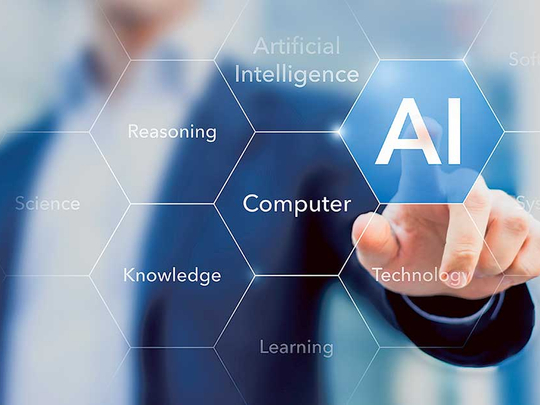
DUBAI: With technological advances being the norm, many of the everyday tasks have slowly been replaced by computer-enabled machines, robots or automation -- from watering the plants, sweeping the floor to driving to work or checking blood sugar levels.
Innovations aren’t just happening on the homefront and in many companies, there has been a widespread adoption of cool new technology. Eventually, as more employers get more high-tech, a number of workers will see their jobs taken over by their non-human counterparts.
In its report released on Tuesday, the Organisation for Economic Cooperation and Development (OECD) identified the specific occupations that are at risk of being replaced by automated technology or artificial intelligence.
READ: What to do next when you get a job offer in Dubai
Ranked highest on the list are those at the bottom of the payscale, including labourers, cleaners and helpers, garbage collectors, assemblers and food preparation assistants. Sales workers, customer service staff and health associate professionals are also at risk.
JOBS MOST LIKELY TO BE DISPLACED BY AUTOMATION (ranked from highest to lowest risk)
1.Food preparation assistants
2.Cleaners and helpers
3.Labourers in mining, construction, manufacturing, transport
4.Assemblers
5.Drivers and mobile plant operators
6.Refuse workers and other elementary workers
7.Agricultural, forestry and fishery labourers
8.Stationary plant and machine operators
9.Food processing, wood working, garment workers
10.Market-oriented skilled forestry, fishery workers
11.Market-oriented skilled agricultural workers
12.Personal service workers
13.Metal, machinery and related trades workers
14.General and keyboard clerks
15.Handicraft and printing workers
16.Building and related trades workers
17.Sales workers
18.Electrical and electronic trades workers
19.Numerical and material recording clerks
20.Customer services clerks
21.Other clerical support workers
22.Health associate professionals
23.Information and communications technicians
24.Protective services workers
25.Business administration associate professionals
In terms of industries, among those most likely to be displaced are certain employees in the food and beverage business, farms, factories, courier and postal firms, transportation and in businesses that offer services to buildings and landscape, among many others.
The OECD study focuses on the risk of automation and is based on the feedback gathered from more than 30 countries around the world. It echoes the results of a growing body of research on the impact of automation on employment.
An earlier study by PwC showed that in the United Kingdom alone, a third of the jobs could be replaced by robots by 2030. A separate analysis by Oxford University also estimated that nearly half (47 per cent) of jobs in the United States could be taken over by automated technology.
Analysts, however, have assured that technology will not result in higher unemployment rates. In fact automation will help people work better and feel more secure in their career. Workers just need to update their skills to get themselves employable in the tech age.
GOOD TO KNOW: How to work part time in the UAE












